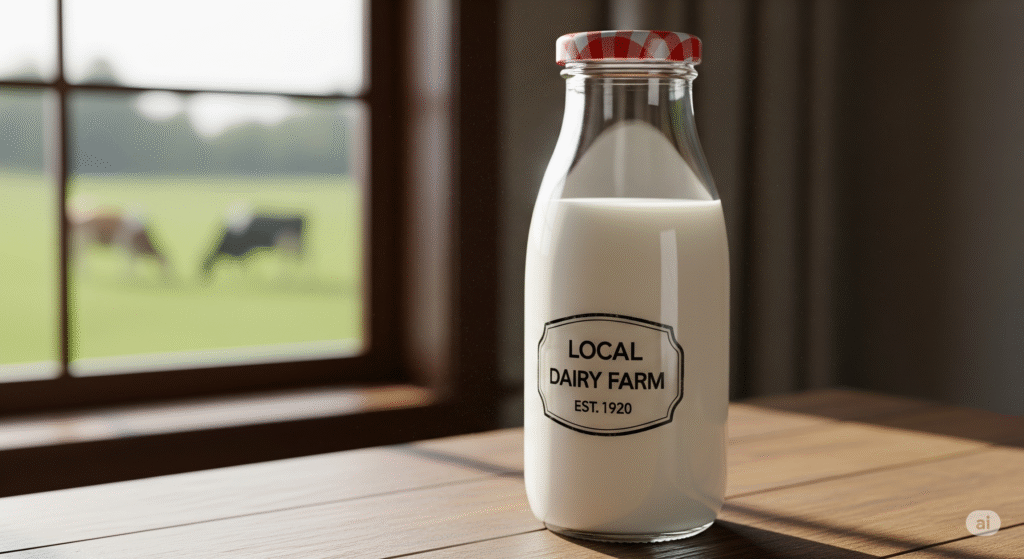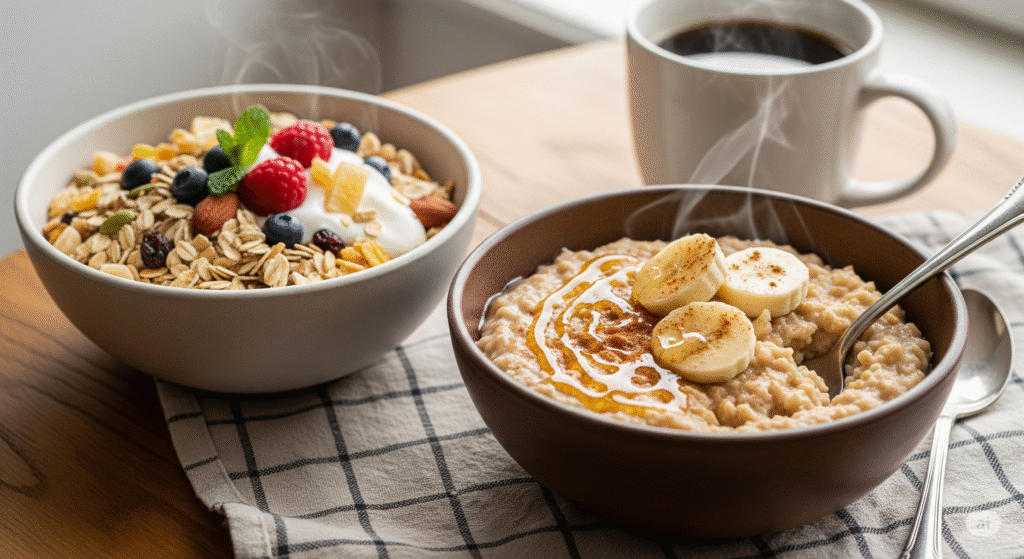Nutrition and Healthy Milk for Weight Loss: What You Need to Know in 2025
When it comes to losing weight, milk often gets mixed reviews. Some people think it’s too fattening, while others consider it a health food. So, what’s the truth? Can milk really help you lose weight?
In this post, you’ll learn:
- How milk fits into a weight loss diet
- Which types of milk are best for weight loss
- Nutritional benefits of milk
- The truth about dairy and fat burning
- FAQs and expert resources
Is Milk Good for Weight Loss?
Yes, milk can be a part of a healthy weight loss diet, if you choose the right type and consume it in moderation.

Milk is naturally rich in:
- Protein – builds muscle and helps control hunger
- Calcium – supports fat metabolism and bone health
- Vitamins D & B12 – boosts mood and energy
- Electrolytes – like potassium and magnesium
The key is picking the right kind of milk and avoiding added sugars.
The Role of Milk in Nutrition and Weight Loss
Here’s why milk works well in a fat-loss plan:
✅ 1. Protein Keeps You Full
Milk contains casein and whey, two high-quality proteins. These help:
- Increase satiety
- Reduce hunger hormones
- Support muscle preservation during weight loss
A cup of low-fat milk contains 8g of protein — great for breakfast or snacks.
✅ 2. Calcium May Boost Fat Loss
Studies show that higher calcium intake can slightly enhance fat loss and prevent fat storage, especially in the belly area.
Low calcium can trigger the body to hold on to more fat.
✅ 3. Milk Replaces Unhealthy Beverages
Replacing sugary drinks (like soda or sweet tea) with plain milk cuts down empty calories and adds nutrition.
Which Milk is Best for Weight Loss?
Let’s break down the options and compare them.
| Milk Type | Calories (per cup) | Protein | Fat | Best For |
|---|---|---|---|---|
| Skim Milk | 83 | 8g | 0g | Low-calorie diets |
| 1% Low-Fat | 102 | 8g | 2g | Balanced weight loss |
| 2% Milk | 122 | 8g | 5g | Higher calorie needs |
| Whole Milk | 149 | 8g | 8g | Muscle gain, keto |
| Almond Milk (unsweetened) | 30–40 | 1g | 2.5g | Low-carb or vegan diets |
| Soy Milk | 100 | 7g | 4g | Vegan, lactose-free |
| Oat Milk | 120 | 3g | 5g | Dairy-free alternative |
Best options for weight loss: Skim milk, 1% low-fat milk, unsweetened almond or soy milk
☕ How to Use Milk in a Weight Loss Diet
Here are healthy, practical ways to enjoy milk without overdoing calories:

✅ Add milk to:
- Oats or muesli in the morning
- Protein shakes or smoothies
- Coffee or green tea instead of cream
- Healthy soups (e.g. low-fat cream of spinach)
❌ Avoid:
- Sugary milk drinks (e.g. milkshakes, flavored lassi, bottled cold coffees)
- Full-fat creamers
- High-sugar cereals with milk
Sample Weight Loss Day (with Milk Included)
| Time | Meal Example |
|---|---|
| 7:30 AM | Oats cooked in low-fat milk + banana slices + almonds |
| 10:30 AM | Black coffee with 2 tbsp low-fat milk |
| 1:00 PM | Grilled chicken salad + Greek yogurt |
| 4:00 PM | Protein shake with almond milk |
| 7:30 PM | Lentil soup + sautéed veggies |
Total calories: ~1500–1700 (adjust as per your needs)
Weight Loss Meals for Men: 10 Protein-Packed Recipes to Burn Fat & Build Strength
Tips for Including Milk in a Healthy Way
- Stick to 1–2 servings (1 cup = 250ml) per day
- Use milk to replace unhealthy snacks, not add more calories
- Choose unsweetened varieties of plant-based milk
- Read labels – flavored milk can have 20+ grams of added sugar
📚 External Expert Resources
❓Frequently Asked Questions (FAQs)
❓Does milk cause weight gain?
Not if consumed in moderation. Overeating any food causes weight gain. Choose low-fat milk and watch portion size.
❓Which milk is best for belly fat?
Low-fat milk or unsweetened almond milk works best. Avoid full-fat milk if your goal is to reduce belly fat.
❓Is almond milk better than dairy?
For weight loss, unsweetened almond milk is lower in calories. But dairy milk has more protein and nutrients.
❓Can I drink milk at night for weight loss?
Yes, as long as it fits your daily calorie needs. Warm milk can help with sleep, which indirectly supports fat loss.
❓Should I avoid milk on a keto or low-carb diet?
Yes. Regular milk contains natural sugars (lactose). Choose unsweetened almond, coconut, or soy milk on keto.
🏁 Final Thoughts: Should You Drink Milk While Losing Weight?
Milk is not your enemy—when consumed smartly, it’s:
- High in nutrients
- A good source of protein
- Satisfying and filling
- Versatile in meals and drinks
The key is to choose low-fat or unsweetened varieties, avoid sugar-loaded versions, and track your portion sizes.
So yes—you can absolutely enjoy milk and still reach your weight loss goals!
